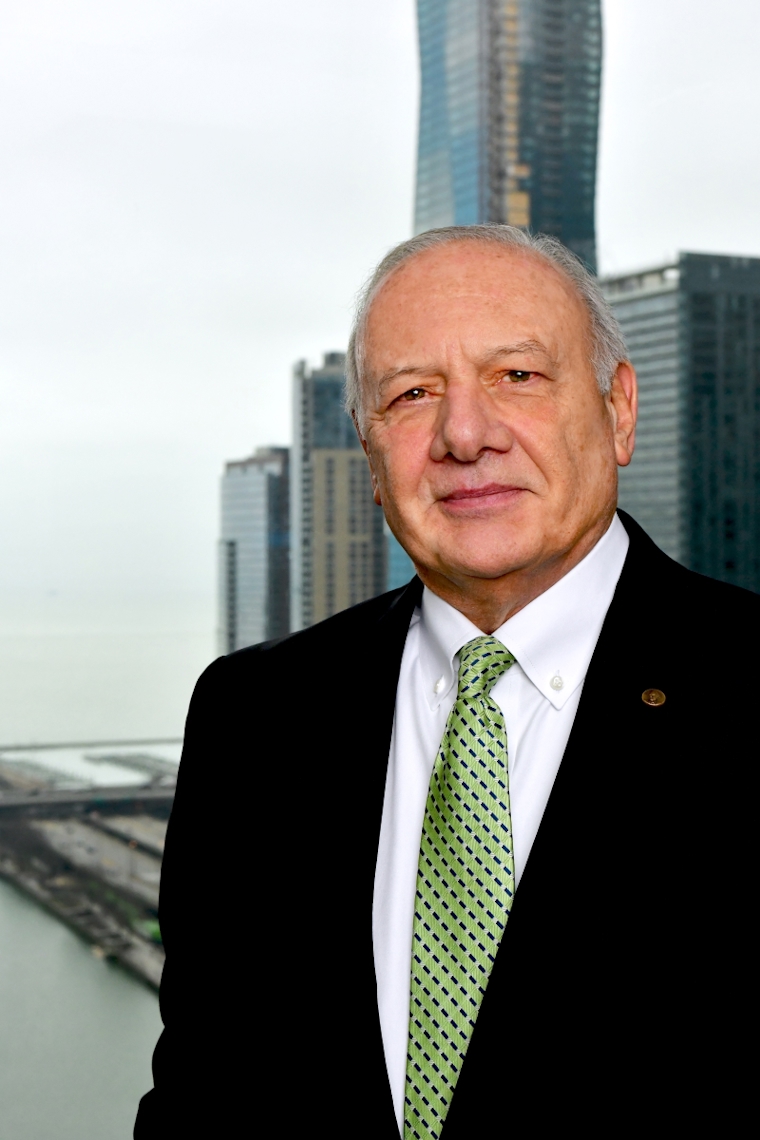“Our residents and fellows have done more and more for all of us, especially the patients of the United States, and we owe them the debt of gratitude and the debt of responsibility as educators to prepare them as best we can for the future.”
A powerful statement and call to action for the graduate medical education (GME) community from ACGME President and Chief Executive Officer Thomas J. Nasca, MD, MACP in his President’s Plenary on Thursday, March 31, 2022, the kick-off for the virtual ACGME Annual Educational Conference.
Dr. Nasca focused his presentation for the more than 5,000 participants in two areas: addressing GME in the era of COVID-19; and emphasizing the need to work together to recognize the sacrifices residents and fellows have made the last two years to care for the American public by preparing them for their transition to independent practice.
He began by reminding the audience that COVID-19 is not the only pandemic we face; deaths due to opioid overdoses continue to rise, with 93,000 in 2020 alone, and little has changed in terms of the “5 Is” referenced in his plenary last year, citing the crisis in Ukraine as evidence of increasing inhumanity in society today. He also shared the ACGME’s pandemic-related data and analysis, highlights of which include:
- The US GME effort continues to grow
- This growth is reflected in the number of licensed physicians, and is greater than the growth rate of the population
- Physician-to-population ratios are growing
- The board certification rate for graduates of ACGME-accredited programs is approximately 89 percent; the goal should be to optimize certification
- ACGME program accreditation success is outstanding
- The ACGME’s Annual Update with feedback to programs is resulting in a rapid remediation of citations
- Probationary accreditation and withdrawal of accreditation statuses are less frequently conferred
- The pandemic has not resulted in increased adverse accreditation decisions
- The pandemic has not slowed the expansion of GME to date
Switching gears to focus on the individuals impacted by COVID-19, Dr. Nasca posed the question, “How are you doing with the fraying of the social contract?” He acknowledged that “residents, fellows, faculty members, staff, graduates, and colleagues all remained steadfast and demonstrated altruistic professionalism under the most challenging circumstances for the profession and country from a public health perspective to be seen in over a century.” He thanked them for their efforts to uphold and strengthen the social contract.
Dr. Nasca shared more data about the detrimental impact of COVID-19 on residents and fellows from an education, professional identity, and health perspective, addressing the extreme emotional highs and lows. He acknowledged the moral injury experienced by many as the pandemic evolved with the introduction of vaccines, new variants, and surges. “Through this phase of altruism unleashed, everyone calling health care workers heroic, the cumulative impact of workload gradually eroded our physical and emotional well-being, producing emotional exhaustion,” he said.
The challenge ahead in the face of this experience is preparing residents and fellows at all stages to successfully enter independent practice, despite variable disruptions to their education and training. He stressed it is essential to avoid making decisions based on performance in the first two months for new residents, and that a formative approach with feedback and customized growth will help individuals be more successful.
To address the challenges of advancing residents and fellows in the waning pandemic, Dr. Nasca called on the GME community to prioritize the following:
- take care of self in order to help others;
- support and heal faculty and staff members, department leaders, and individuals;
- assess the cumulative impact of the pandemic on the educational progress and experience of each resident or fellow and incoming PGY-1 residents; and,
- prioritize this assessment.
He gave ideas for program directors, advisors, and residents and fellows themselves, including connecting to specialty certification boards, facilitating mentoring, and running a quasi bootcamp on essential clinical competencies, as the pandemic has shone a light on the need to move further toward competency-based medical education.
Dr. Nasca completed his talk by harkening back to the conference theme of rebuilding connections and repairing the frayed social contract: “Only if we try to do this together, will we get this done. Our society needs to heal as much as our educational programs need to heal. Much is yet to be done, but we’re going to do it together.”
View Dr. Nasca's full presentation on the ACGME's YouTube channel.
*To assist the GME community with preparing medical students for residency, and residents/fellows for independent practice, the ACGME will be sharing an updated version of a UME to GME toolkit and a new toolkit for transitions from residency to fellowship and residency/fellowship to independent practice. Look out for information in an upcoming ACGME e-Communication.

